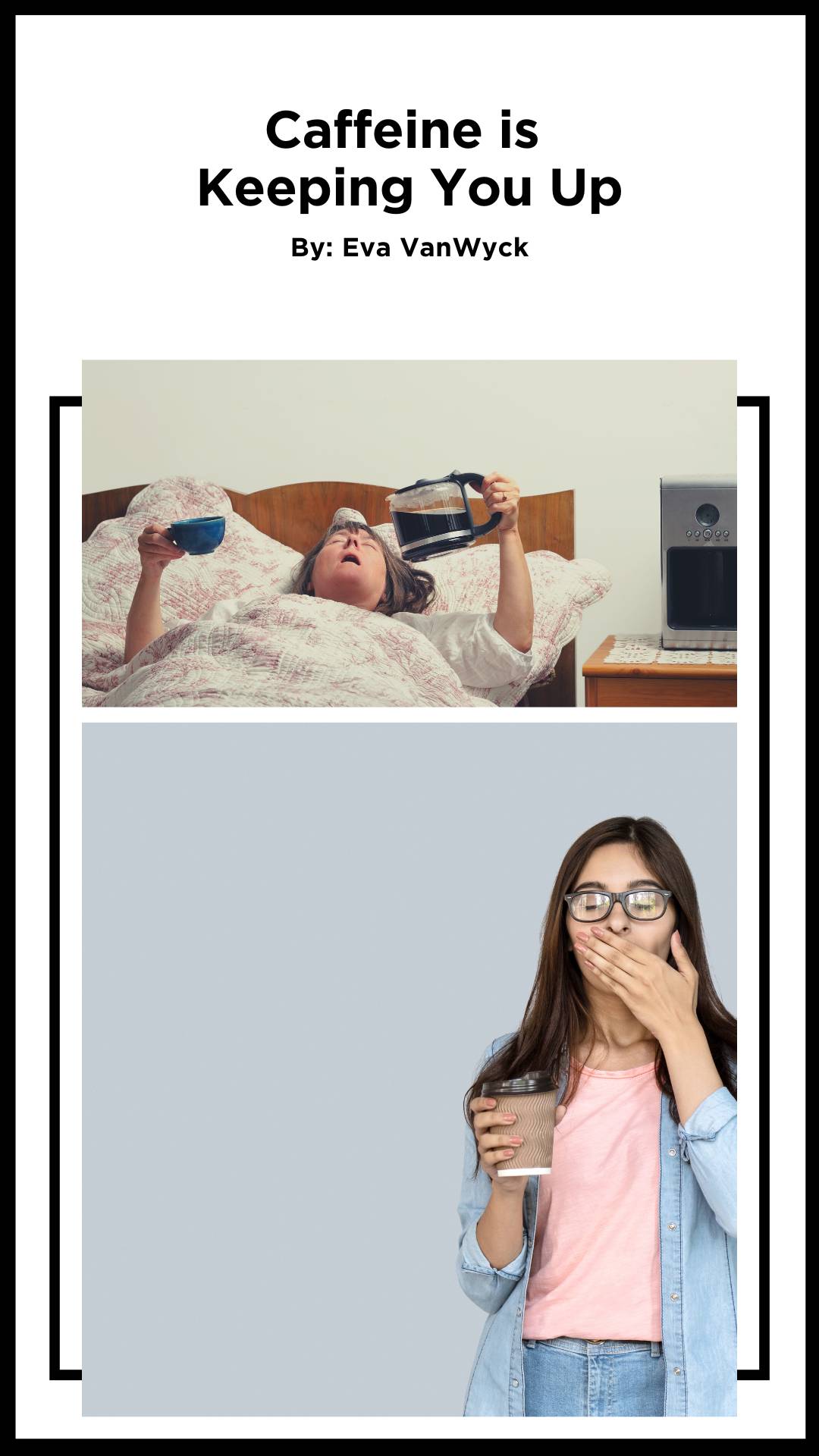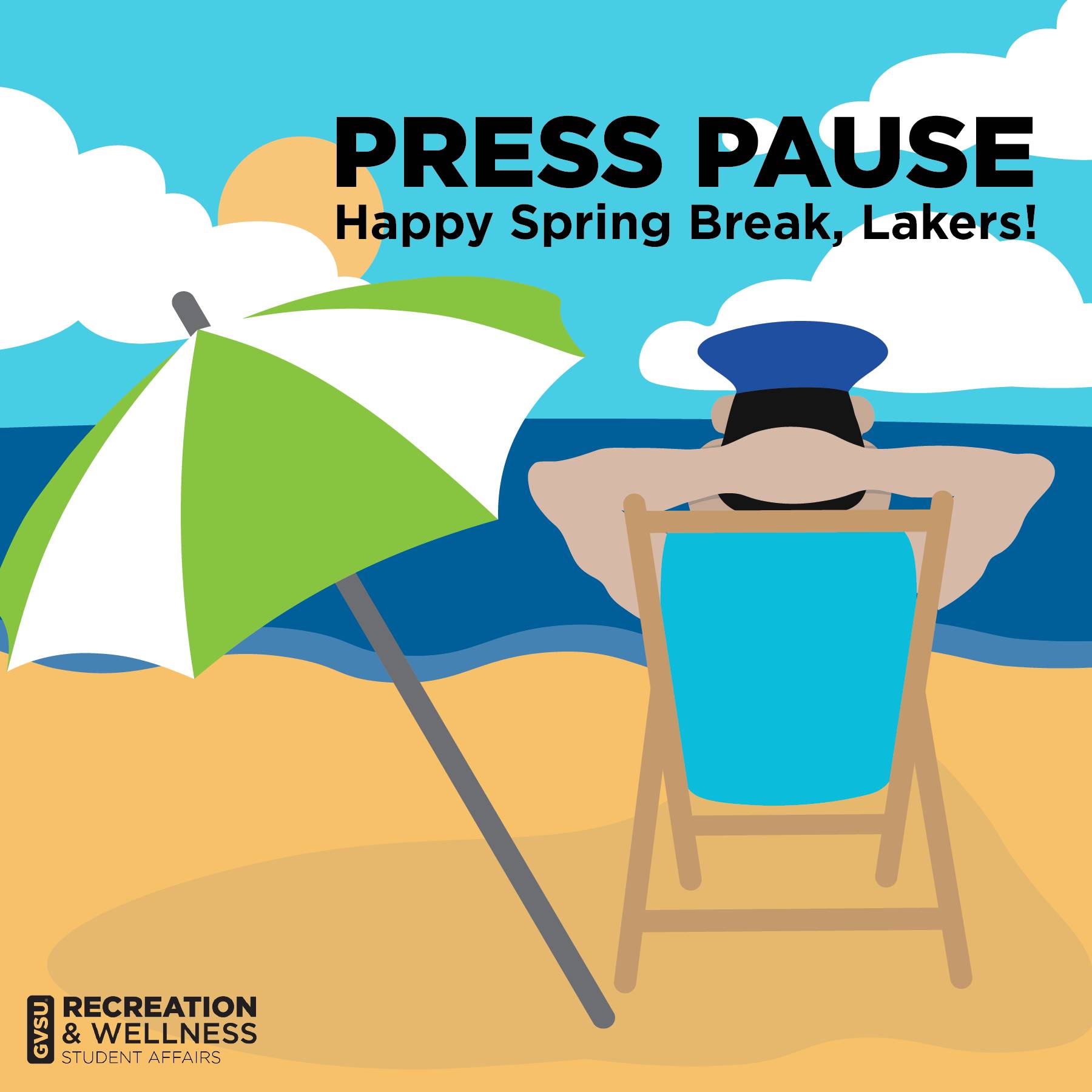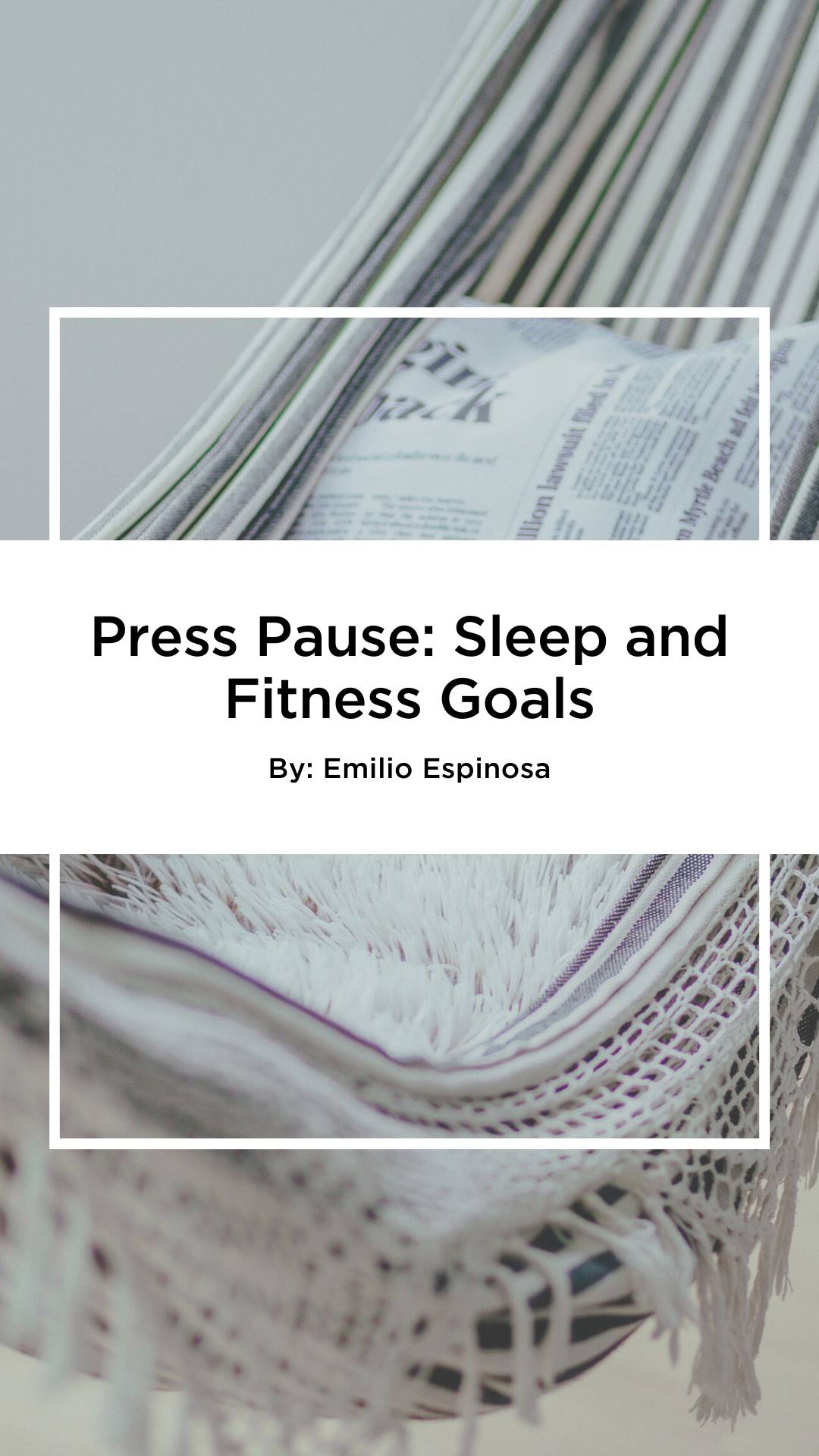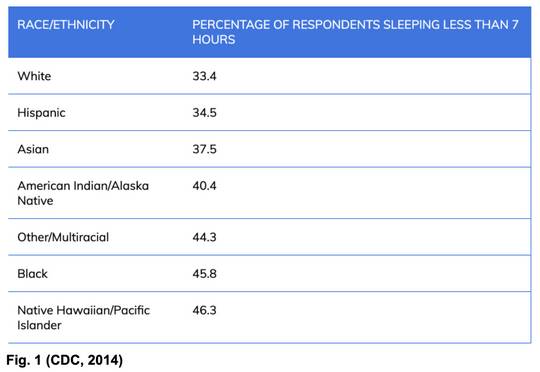Blog
Permanent link for Are You Getting Enough Rest?: The Three Ingredients for a Good Night's Sleep on February 29, 2024
Have you ever found yourself dreaming about slipping back under the covers the moment you wake up in the morning? Do you ever watch your peacefully sleeping pets and wish you could effortlessly drift off like them?
I do, especially as someone who has struggled with insomnia for the past two years. Sometimes getting enough restful sleep can feel like a losing battle but there are tips and tricks that can make drastic changes.
So, with it being the week of Public Sleeping Day (Feb. 28th), I want to dive into the topic of sleep and our sleep habits. Why? Because most of us don't get adequate sleep, and at some point in life, everyone struggles with challenges related to sleep.
Sleep is the glue that holds our bodies and minds together. From preventing dementia and depression to mitigating high blood pressure and heart disease, there’s no lack of evidence that catching enough zzz’s is nature’s best medicine.
You know that feeling you get after a good night’s sleep? You face the day with a clear head, enthusiasm, and boundless energy. That’s the work of the brain’s glymphatic system (GS), it bathes our brain in a fluid that carries away toxins. The enzymes in this fluid are like little sanitation workers that only come out when you’re asleep. But, not just any kind of sleep, the kind that has you drooling on your pillow. This type of sleep is only reached when you are in REM sleep. There are four sleep stages in your sleep cycle: Non-rapid eye movement 1,2 and 3, and Rapid eye movement. The first two stages are light sleep, this is when you might twitch and are easily woken up. The second stage is the start of deep sleep while REM is deep sleep, this is when dreams occur.
The ingredients for a good night’s sleep fall into three categories: Environmental, Behavioral and Psychological. Each is important, and getting all three elements working together is the recipe for the perfect sleep.
Environmental Factors
A good sleep environment is dark (think: blackout curtains and shades and no glowing lights from devices etc.) It’s also quiet and cool (ideally below 65 degrees). So try turning down the heat or opening a window. Since it might be a little too chilly to open a window this time of year, consider a floor or ceiling fan, which has a bonus feature of white noise. I have found that white noise helps minimize racing thoughts at night. Sleep should be the time you relax and try not to stress about academics and other stressors.
If you sleep with pets, significant others or roommates it can be difficult to get your environment just right. It's important to shoo your pet out of the room or have a conversation with other sleepers near you on how to maximize your environment for the best sleep.
Here are some tips for before bed:
- Schedule a winding down time. Try grabbing a nice book, listening to a podcast/sleep playlist or meditation/yoga.
- Drink some tea. Teas with chamomile, lavender or passionflower is a perfect way to relax before bed. If you see the WIT cart on campus we offer free tea to grab!
- Open your senses with essential oils for aromatherapy.
- Earplugs, eye shades, black-out curtains, or a weighted blanket can help get you into the sleep zone. (WIT offers earplugs and eye shades for free when available)
- Find your ideal pillow.
- Try taking a hot shower or bath before bed.
- Use a sleep calculator to wake up between your sleep REM cycles.
Here are some tips when when you are in bed:
- Go commando. It's proven that sleeping naked can help your body maintain an ideal body temperature. You’ll want to skip this step if you live in a dorm, you wouldn't want to give your roommate a scare.
- Minimize distractions from electronics like using a sleep timer for example. As tempting as it is to scroll endlessly on tik tok or instagram, the blue light admitted from our devices causes your brain to not produce melatonin (the sleepy hormone).
- Focus on your breathing. Try this 4-7-8 technique.
- White noise is a game changer. My suggestion is this 12 hour long video on Youtube.
Behavioral Factors
Many sleep issues can be helped by changing pre-bedtime routines. We tend to get into bed with our minds still humming from the day, worrying about work, school, friends, everything and nothing at the same time. Some of us subconsciously run through our to-do list at the exact moment our head hits the pillow. How can we slow down our brain?
Here are some tips for use during the day that can affect your nightly routine:
- Try to get some sort of physical activity every day. A run or a walk can calm anxiety, and healthfully tire the body. Try not to exercise right before bed because that can have the opposite effect. Here is a link to our last WIT blog post about the importance of physical activity.
- Don’t eat a large meal during the three to four hours before bedtime. Remember that this can be different for everyone, try and find a schedule that works best for you.
- Nap strategically. A well-timed nap can help pay off your sleep debt, but nap too late in the day and it can impact your ability to fall asleep later. If you nap, shoot for under one hour and before 3 pm.
- Avoid drinking caffeinated beverages after noon.
- Avoid alcoholic beverages before bed.While alcohol sometimes makes us tired, it also has an energizing effect that kicks in as it metabolizes.
Psychological Factors
Episodes of sleeplessness are a common part of life, especially as a college student, yet when persistent insomnia or hypersomnia disrupts your well-being and health, it may signal deeper emotional and mental health concerns. It's important to address and manage factors such as stress, anxiety, burnout, recurring nightmares and depression directly. Seeking guidance from your doctor and seeking support as necessary is important when disrupted sleep goes deeper than environmental or behavioral factors.
If you are struggling GVSU has a wide variety of mental health resources and wellness coaching.
Here are some general tips and tricks you can do:
- Keep a journal or sticky notes near to jot down your late night thoughts. Decluttering your brain right before sleep is a lot better than wrestling with your to-do list during the night.
- Reserve your bed for sleep and intimacy. Try not to study in your bed to avoid your brain confusing your bed with other activities.
- Reading before bed is a great winding down activity, but avoid books with violence or too much excitement.
- Try to keep a consistent sleep schedule. This can help your body's internal clock know when to start getting tired.
Remember, it's okay to have struggled falling asleep, it's actually quite common, especially among college students. I hope these tips will help you catch some much needed sleep!
By: Lainey, WIT Peer Educator
Categories:
General Wellness
Rest
Sleep
Posted
on
Permanent link for Are You Getting Enough Rest?: The Three Ingredients for a Good Night's Sleep on February 29, 2024.
Permanent link for The Year of Self-Love on January 25, 2024
In case you didn’t know (just like I didn’t), January is Self-Love Month! What could be a better way to start off the new semester than that, huh? But, just because January’s almost over, that doesn’t mean you should stop practicing self-love during the rest of the year! For some of you, you might have self-love locked down. For others, it might be a bit harder. Either way, we’ve got some helpful tips and activities that’ll help you nurture and flourish the love you have for yourself.
What is Self-Love & What Does it Look Like?
Although it might seem obvious, let’s define what self-love really means. Self-love means having an appreciation of your worth; and having concern for, and giving attention to, your own happiness and well-being. Sometimes, that’s easier said than done, though. I know that I’m definitely guilty of putting the happiness of my friends and my partners before my own. It is a good thing to be selfless and put the needs of others first, but not when it’s at the expense of your own well-being. You deserve to be appreciated and happy. And no one else can truly appreciate you better than yourself.
So, we know what self-love is, but what does it look like? Well, self-love looks like taking care of yourself mentally, emotionally, physically, and socially. Simply put, practicing self-care can develop the love you have for yourself. Self-care encompasses the actions and practices that you take to support your overall well-being.
How To Develop Self-Love Through Self-Care
The first step in practicing self-care is to know yourself and your body. Start by taking a moment to recognize how you feel after engaging in specific activities like sleep, exercise, spending time with friends, a favorite hobby, or a night out partying. Which activities seem to drain you? And which feel like they rejuvenate you? Do some of them give you energy only for a certain amount of time before becoming draining? Knowing what makes you feel good (and what doesn’t) is the first step in knowing what you need in order to care for yourself.
For example, if you know you feel better after physical activity (and let’s be honest, most of us do), self-care is making room in your schedule to exercise, even if it means giving up something else like watching your favorite TV show. Sometimes, self-care isn’t fun. It means following through with what you need even if you don’t want to. Sometimes, self-care can be hard, too, such as having to set boundaries with friends and with loved ones. This can look like saying “no” when something is asked of you even if that means disappointing someone else, or standing up for yourself when you’re being treated unfairly. It can also look like ending a toxic relationship because it might be hard to see it, but you know that you deserve better.
All of this isn’t to say that self-care can’t be enjoyable or fun because it absolutely can be! Self-care can also look like taking a day off because you’ve been working really hard lately (maybe a little too hard) or reading a good book or going to see a movie. It can look like treating yourself to a special food or taking a relaxing bath, getting your hair done, playing a video game, or spending time with friends.
Ultimately, self-care is listening to your body and your mind, and then giving yourself whatever it is you need in order to feel your best and become the best version of yourself that you can be.
Classic Self-Care Tips
Some specific ideas for practicing self-care while at college include:
- Setting a routine (and sticking to it). As mentioned earlier with the exercise example, you may not want to do it, but you will benefit from it. So decide to do it and follow through; it’ll help you feel more productive and focused in the long run.
- Prioritizing your sleep. As a college student, there’s always something to do (trust me, I know). But making sure you get enough sleep each night (at least seven hours), will give you more energy to do even more things. Read more about How to Unleash Your Inner Sleeping Beauty!
- Eating as many balanced meals as possible. Again, another task that can be difficult for college students, but not impossible. Giving your body the nutrients it deserves will make you feel better physically and mentally. Here are some recipes from one of our other blogs!
I hope these ideas help you practice self-care and I wish you a very happy year of self-love!
By: Sara, WIT Peer Educator
Image created by Dani DiPirro on positivelypresent.com
Categories:
General Wellness
Nutrition
Press Pause
Rest
Sleep
Posted
on
Permanent link for The Year of Self-Love on January 25, 2024.
Permanent link for New Year, New Series with WIT! on January 18, 2024
Do you ever get into a routine and then come to realize your week went by in a blink? Do you ever get the feeling that what you are learning is losing its charm? Are you wondering how you can be more present and have more fun? Well according to many studies, the answer could be curiosity:
- Beat the winter blues with curiosity. Studies have shown that when we discover or learn about something new our brains send us signals that make us feel good, boosting our mood.
- Build relationships. Research shows that genuine curiosity is one of the biggest factors that contributes to creating a closer connection when interacting with others.
- Score higher on assignments. Whether at school or any other occupation, having curiosity about the task at hand can improve the overall outcome of our efforts.
This winter, the WIT Peer Educators are excited to keep your adventuring and curiosity going with some new content each week! We are a group of fellow students with a passion for helping our peers stay informed and inspired about health and wellness topics.
We are back this winter with a series of content including some of our favorite topic areas of sexual health, nutrition, rest, the 8 dimensions of wellness, and much more! We have so many topic ideas we are excited to share with you this semester. Watch for a post every Thursday, either on Instagram, the RecWell blog, or both!
If you can’t wait until Thursday, check out our past blog posts on our website. Take a look at everything from “What is Sexuality?” to “Easy Winter Meals to Make in Your Dorm” to “How to Unleash Your Inner Sleeping Beauty". Got another idea you’d like to see? Head over to our Ask WIT question box and we’ll get one written just for you!
If blog posts or Instagram aren’t your thing, scroll through the student wellness website containing a plethora of information and resources, request a presentation on our website, catch us at the WIT cart (probably inside this semester) or attend some of our many events, including the continuation of the Eat Well series with Laker Food Co.
Whatever you might be up to this winter, we hope you can take some moments to pause and explore a range of wellness topics to boost your mood, foster growth in the 8 dimensions of wellness, put more joy into learning, and reap the benefits of curiosity!
By: Josie, WIT Peer Educator
Categories:
Fitness
General Wellness
Nutrition
Press Pause
Rest
Sexual Health
Sleep
Winter
Posted
on
Permanent link for New Year, New Series with WIT! on January 18, 2024.
Permanent link for Ways to Keep Your Immune System Strong in the Cold Winter Months on December 11, 2023
Well, I think we can say that we are finally getting into the colder months. As I walk around campus I see the ugg boots, coats, hats, and gloves and the coffee shops busier than ever! With this time of year cold and flu season kicks into high gear and we must take the time to make extra efforts in keeping ourselves healthy. While it's impossible to remove yourself completely from all the winter germs, there are many things you can do to help keep your immune system in tip top shape so that you can fight the germs when they come your way.
Sleep and immunity are closely tied, as poor quality sleep is linked to higher susceptibility to sickness. Getting adequate rest is important to strengthen your immunity and keep up with your busy schedule. Also, if you do get sick, it's important to allow your body extra time for rest as your body will be able to better fight off the illness. Adults should get at least 7 hours of sleep each night to promote healthy sleep hygiene. If you have trouble sleeping, keeping your room as dark as possible, going to bed at the same time each night, and exercising regularly can help improve sleep quality.
Foods like fruits, vegetables, nuts, seeds and legumes are full of nutrients and antioxidants that help decrease inflammation in the body. Increased inflammation is linked to having a lower immune response and can cause you to catch a cold easier. Also, fiber in plant foods feed your gut microbiome which is the bacteria that lives in your stomach along the digestive tract. A good gut microbiome can improve your immunity and help keep harmful pathogens from entering your body via the digestive tract. Fruits and vegetables high in vitamin C like oranges, strawberries, broccoli, tomatoes and potatoes also will help to fight off that common cold. Other foods that are particularly good for the immune system include whole grains, lean protein, fermented foods such as yogurt, sauerkraut, miso or tempeh, and some spices like garlic, ginger, turmeric and even cinnamon.
Moderate exercise can help boost your immune system tremendously. It has been shown to be just as effective as vaccines in people with compromised immune systems. Regular moderate exercise also helps keep inflammation low and help your immune cells regenerate regularly. Jogging, walking, swimming, lifting or any other activity you enjoy are all great ways to keep your body healthy!
Water plays many important roles in our body including supporting our immune system. Water is important because our blood and lymph, the fluid that provides a way for the body to get rid of waste, need water in order to keep the immune cells in them flowing and circulating. It's important that you are hydrating with the right fluids too. Water is the best, as you should try and avoid loading up on caffeinated drinks, juices, and sodas.
It's important to keep stress levels at bay as chronic stress can really impact your health. Stress can potentially have a secondary impact on your immune function if it leads to sleep disturbances, a tendency to eat less nutritious foods, less water intake, and less frequent exercise. A tip to help keep stress levels low is finding time to engage in self care regularly. Whether that is lighting a candle, reading, walking in nature, a nice warm bath, or enjoying a cup of coffee or tea.
Utilizing these simple techniques can help you stay healthy during the colder months so that you can enjoy all that this season has to offer. I know I’ll be!
By: Amber Gunneson, WIT Volunteer
Categories:
General Wellness
Nutrition
Rest
Sleep
Posted
on
Permanent link for Ways to Keep Your Immune System Strong in the Cold Winter Months on December 11, 2023.
Permanent link for How to Unleash Your Inner Sleeping Beauty: The Ultimate Guide to Better Zzz's for GV Students on April 24, 2023
As a Wellness Information Team Peer Educator, one of the most common concerns we hear from Grand Valley State University (GVSU) students is trouble sleeping. Numerous students have trouble obtaining the sleep they need, whether it's due to trouble falling asleep, remaining asleep, or waking up feeling exhausted. In this blog, we will explore the psychological and emotional impact of sleep and provide practical tips to help students get a good night's rest. Let's dive in!
Think: "Unlocking Your Best Self: The Power of Good Sleep Habits"
When it comes to achieving your goals and feeling your best, quality sleep is a critical component. The way we think about sleep can have a big impact on our ability to prioritize it and establish healthy habits. By recognizing the power of good sleep habits and the benefits they can bring, we can shift our mindset towards prioritizing rest and reaping the rewards of a well-rested mind and body.
The term "thinking" in this sense refers to a variety of activities. You must consider your existing sleeping patterns and attitudes, including whether you value sleep and understand its significance. It also involves being aware of the advantages of getting enough sleep, including enhanced mental clarity, greater physical health, and increased productivity. Last but not least, it is being proactive about changing your sleeping patterns, for example, by putting the blog's advice into practice or looking for extra resources and support.
By "unlocking" the power of good sleep habits and recognizing their role in achieving our best selves, we can take a more intentional approach to sleep and prioritize it alongside other aspects of our well-being.
Feel: "Snooze to Success: Empowering Your Mind and Body with Quality Sleep"
The way we feel about sleep can have a big impact on our ability to prioritize it and establish healthy habits. When we recognize the benefits of quality sleep and the positive impact it can have on our mental and physical health, we're more likely to make it a priority in our daily lives.
The "feel" aspect of this title is all about recognizing the emotional benefits of quality sleep. Getting enough rest can help us feel more energized, focused, and productive during the day. It can also reduce stress and anxiety, improve our mood, and support our overall well-being. By prioritizing quality sleep, we can tap into these emotional benefits and empower ourselves to feel our best.
In this context, "feeling" is about recognizing the connection between our emotions and our sleep habits. It involves understanding the impact that sleep can have on our mood, stress levels, and overall well-being. It also means recognizing the emotional benefits of quality sleep and prioritizing it as a key aspect of self-care.
By "snoozing" to success and empowering our mind and body with quality sleep, we can tap into the emotional benefits of rest and support our overall well-being.
Do: "Take Charge of Your Zzz's: Practical Tips for a Restful Night's Sleep"
There are many factors that can affect sleep quality, including stress, anxiety, caffeine intake, and screen time. Here are some common sleep problems, that students may experience:
- Insomnia: difficulty falling asleep or staying asleep
- Sleep apnea: a condition where breathing is interrupted during sleep, leading to snoring and daytime fatigue
- Restless leg syndrome: a condition where you feel an uncomfortable sensation in your legs that makes it difficult to sleep
- Circadian rhythm disorders: disruptions in your body's internal clock that can lead to difficulty falling asleep or staying asleep at the right times
If you're experiencing any of these sleep problems, it's important to talk to your healthcare provider to determine the best course of treatment.
There are several things you can do to improve your sleep quality. Here are some tips:
- Stick to a sleep schedule: Establishing a consistent sleep routine can help regulate ( your body's internal clock and improve sleep quality. Aim to go to bed and wake up at the same time every day, even on weekends. If you have trouble falling asleep, avoid napping during the day, as this can disrupt your sleep schedule.
- Create a sleep-conducive environment: Your sleeping environment can have a big impact on sleep quality. Make sure your bedroom is cool, quiet, and dark. If you live in a noisy area or have roommates who stay up late, consider using earplugs or a white noise machine to block out distractions. Use blackout curtains or an eye mask if necessary to block out any light that might disturb your sleep.
- Limit screen time : Exposure to the blue light emitted by electronic devices like smartphones, tablets, and laptops can interfere with your body's natural sleep-wake cycle. Try to avoid using electronic devices for at least an hour before bedtime. If you need to use your device, consider using a blue light filter or wearing blue light-blocking glasses to reduce the impact on your sleep.
- Avoid caffeine and alcohol: Both caffeine and alcohol can disrupt sleep quality. Caffeine is a stimulant that can keep you awake, while alcohol can interfere with REM (rapid eye movement) sleep, which is important for memory consolidation and overall sleep quality. Try to avoid these substances in the hours leading up to bedtime.
- Practice relaxation techniques: Stress and anxiety can make it difficult to fall asleep or stay asleep. Practicing relaxation techniques such as deep breathing, meditation, or yoga can help you relax and prepare for sleep. Consider incorporating these practices into your bedtime routine to help calm your mind and body before bed.
- Get regular exercise: Exercise can help improve sleep quality by reducing stress, promoting relaxation, and regulating your body's internal clock. However, try to avoid exercising too close to bedtime, as it can increase alertness and make it harder to fall asleep. Aim to exercise earlier in the day, at least a few hours before bedtime.
- Seek help if needed: If you're struggling with sleep despite trying these tips, consider talking to a healthcare provider or seeking help from a sleep specialist. There are many effective treatments for sleep disorders, such as cognitive-behavioral therapy for insomnia (CBT-I) or continuous positive airway pressure (CPAP) therapy for sleep apnea. Your healthcare provider can help you determine the best course of treatment for your specific needs.
In conclusion, getting enough sleep is critical for overall health and well-being. By prioritizing sleep and taking steps to improve sleep quality, you can feel more rested, alert, and focused throughout the day. Don't hesitate to seek help if you're struggling with sleep, as there are many effective treatments available. Good luck and Sweet dreams!
References:
- Worley SL. The Extraordinary Importance of Sleep: The Detrimental Effects of Inadequate Sleep on Health and Public Safety Drive an Explosion of Sleep Research. P T. 2018 Dec;43(12):758-763. PMID: 30559589; PMCID: PMC6281147.,
- .https://newsinhealth.nih.gov/2013/04/benefits-slumber,
- https://health.gov/myhealthfinder/healthy-living/mental-health-and-relationships/get-enough-sleep
- https://teaching.fsu.edu/tips/2020/10/02/rest-is-essential-for-learning-productivity/
- https://www.health.harvard.edu/newsletter_article/sleep-and-mental-health
- https://www.sleepfoundation.org/sleep-hygiene ,
- https://www.mayoclinic.org/healthy-lifestyle/adult-health/in-depth/sleep/art-20048379
By: Aravind Gurusaran Korukonda, WIT Peer Educator
Categories:
Press Pause
Rest
Sleep
Posted
on
Permanent link for How to Unleash Your Inner Sleeping Beauty: The Ultimate Guide to Better Zzz's for GV Students on April 24, 2023.
Permanent link for Caffeine is Keeping You Up on March 1, 2023
March is here, and at GVSU, March is all about sleep! Winter semester is Recreation & Wellness’s Press Pause campaign, and in March we focus on good sleep health and getting adequate rest. I am going to talk all about the relationship between caffeine and sleep so you can start off your March getting the best sleep you can!
You may have read the title of this blog post and thought, “Well yeah, that is why I drink it.” Lots of Americans drink caffeine daily to help them feel alert and awake in the morning. The FDA states that around 80% of US adults drink caffeine daily. It is common to hear tired voices lament that they have not had their coffee yet, especially on a university campus. But drinking caffeine daily can actually be the reason you don't feel alert and rested without your coffee.
Let's start by explaining how caffeine works.
In the brain, you have a chemical called adenosine. This chemical builds up during the hours of the day you are awake and sends a signal that you are tired by binding to special adenosine receptors. So the longer you are awake, the more adenosine builds up and the more tired you feel. When you drink caffeine it makes its way through the bloodstream and into your brain. Caffeine will then bind to the adenosine receptors and block them. This means that although adenosine is still building up in the brain, your body doesn't know that it is tired yet. This is why you sometimes crash mid-day, the caffeine has left your system and isn't blocking those adenosine receptors anymore, leading to a sudden feeling of tiredness. This is also why drinking caffeine later in the day will keep you up, that caffeine is still blocking your adenosine from making you feel tired and getting the rest you need.
So now that you know how caffeine works to make you feel awake, let's talk about how caffeine use affects sleep quality.
Once your caffeine has worn off and you go to sleep, the effects of caffeine consumption still continue. Even if that cup of coffee was early in the day, drinking caffeine still affects your sleep. Caffeine can make it harder to fall asleep, stay asleep, and can overall reduce the quality of sleep you get. Especially if you drink caffeine regularly. Caffeine reduces short-wave sleep; This is the deep restful sleep that makes you feel recharged and alert the next morning.
So what happens for many of us is we don't get good quality sleep so we are tired in the morning and turn to coffee, soda, or other caffeinated drinks. Then that caffeine makes our sleep worse, so we are tired in the morning and drink more caffeine. This creates a vicious cycle of needing caffeine to feel awake because of getting poor sleep. Don't worry coffee lovers, I am not saying you need to give up your favorite part of your morning entirely, but cutting back can improve sleep and stop this cycle.
The safe amount of caffeine in a day is 400 milligrams, which is about 4 cups of coffee. You may not be drinking that much coffee but soda and energy drinks during the day can easily put you over that safe limit. This is also true if you take pre-workout and drink caffeine. Drinking too much caffeine can lead to symptoms I am sure most of us know well, like jitters, nausea, headaches, and a pounding heart rate. It also increases your blood pressure, makes you more dehydrated, and can even cause health issues like problems with digestion.
You can stop this cycle and feel awake without caffeine in lots of different ways. One big one is cutting back on caffeine. If you drink a lot of caffeine or drink caffeine daily this can be hard. One way to do it is to cut back slowly. So if you drink 2 cups of coffee in the morning and an energy drink at lunch, start by just cutting out one of those 3 drinks. Then cut one more, and maybe then you switch to a lower caffeine option like tea. This is going to look different for everyone. Some people may be able to stop drinking caffeine entirely, but for others, caffeine is part of some of their favorite drinks. Just know that cutting back on caffeine (even if you don’t cut it out entirely) will still have benefits.
So now you have cut back on caffeine, but you may still feel a bit tired in the morning. Are there other caffeine-free ways to feel awake?
You bet there are! There are actually a lot. Here is a list of proven ways to boost alertness without that cup of coffee:
- Hydrate throughout your day by drinking lots of water
- Exercise
- Eat some fresh fruit
- Eat a balanced diet
- Nap throughout the day (check out our nap map here!)
If you still can’t shake the sleep off and feel well-rested, there may be some underlying reason for being tired day in and day out. That is when you should talk to your doctor about your symptoms. Conditions like sleep apnea are fairly common, 1 in 15 people in the US has a type of sleep apnea. Sleep apnea can reduce sleep quality and cause other serious health concerns.
Now that you know the ins-and-outs of caffeine and sleep, you are ready to go and tackle your fatigue and get lots of restful sleep. If you want to dig deeper into the topic of sleep, Check out Emilio’s blog post on how sleep impacts fitness, Annie’s blog post on the racial sleep gap, and Stella’s blog post on the importance of sleep.
By: Eva VanWyck, WIT Peer Educator
Categories:
Press Pause
Rest
Sleep
Posted
on
Permanent link for Caffeine is Keeping You Up on March 1, 2023.
Permanent link for WIT Blog Series is Back! on January 25, 2023
The WIT Peer Educators are back again this semester to share about their favorite topics in nutrition, sexual health, pressing pause and so much more. WIT members are GVSU students from a variety of majors and backgrounds. They are brought together by their passion to support their fellow students in pursuing health and wellness.
Stay tuned every Thursday for the latest blog entry. Have ideas for a blog post? Submit a question to our Ask WIT Form and we'll get one written just for you!
By: Katie Jourdan, Assistant Director RecWell
Categories:
General Wellness
Nutrition
Press Pause
Rest
Sleep
Posted
on
Permanent link for WIT Blog Series is Back! on January 25, 2023.
Permanent link for Your Spring Break To Do List on March 8, 2022
Hello all! This is Katie - taking on writing this spring break blog post so the WIT Peer Educators can take some time to rest, relax and refresh; to press pause if you will.
Is it just me or has this semester seemed really long already?
Now, I know you’re halfway through spring break, but I want to be sure you’re all getting some things done this week. It may seem counterintuitive to have a spring break to do list, but trust me… you’re gonna want to make sure you do some of these things!
Spend time with friends/family - Our social wellness has taken a hit during the pandemic. With more time spent in our rooms and in a virtual world, we’ve lost opportunities to just be in spaces with people. Take some time to be with people you like.
Sleep - Seriously, get some sleep! The WIT Peer Educators have plenty of blog posts on why sleep is so important if you need any reasons to sleep more.
Do something you enjoy - Haven’t read a book for fun in awhile? Haven’t binged the newest Netflix series? Whatever it is (cooking, painting, video-gaming, puzzling, crafting, running, hiking, fishing, dancing, driving, singing….). Now’s your chance!
Unplug - Getting away from technology, especially social media and the 24 hour news cycle can be super cleansing. Maybe go for a walk or call a friend instead?
Whatever you do for the rest of spring break, please take some time to rest.
By: Katie Jourdan, Student Health Promotions Coordinator (and a big fan of resting!)
Categories:
General Wellness
Press Pause
Rest
Sleep
Posted
by
Katie Jourdan
on
Permanent link for Your Spring Break To Do List on March 8, 2022.
Permanent link for Can Lack of Sleep Significantly affect One's Physical Well-being? on March 3, 2022
Spoiler: it can.
Have you ever woken up late and been unable to do everything you wanted to do in the day? Finding yourself staying up late on your phone watching Tik Toks? While these activities seem fun at the moment, they negatively impact more than just your energy, they can affect your body, too. Prioritizing your sleep routine can benefit your personal fitness goals!
Your body without sleep: Hungry!
While it is true that sleeping is our body’s way to rest up the brain, sleep gives a deep meaning to our body’s physical health as well. Previously mentioned in last week’s blog, neurotransmitters give our brain signals. Two of them, called ghrelin and leptin, tell our brain how hungry or full we are. A study done by the National Library of Medicine (NIH), tells us that a restriction of sleep, or sleep deprivation, can raise our ghrelin and leptin levels, causing us to get hungrier. The study also concluded that we tend to choose calorie-dense foods that are high in carbohydrates when we’re sleepy and hungry. Now, carbohydrates are really good for our body - they are our body’s preferred source of energy - but the problem is, the study shows we tend to choose fatty foods for our carb fix with lots of less healthy fats, such as pizza, donuts, fries, etc. when we do not get enough sleep.
Other ways sleep affects the body and your fitness goals
Sleep:
- Helps muscles rebuild at night (think muscle repair after a workout)
- Lowers blood pressure, giving your heart and blood vessels a break
- Increases motivation (which is important if you’re trying to stick to routine!)
- Supports your immune system
- Allows for a steadier blood sugar level in the deepest sleep (which helps lower risk of type 2 diabetes).
So if you’re lacking sleep, you’re missing out on all these benefits!
A step in the right direction
Reading all this, it may be overwhelming to think what is happening to your body with too little sleep, but you can make a change and get more sleep if you want! For example, I personally just found out about google calendar and now like to incorporate my sleep schedule into each day. Giving yourself an idea of when to go to bed and how much sleep you will get is very useful! And,the biggest piece of advice I have is setting a specific amount of time to put your phone away before bed. The Tik Tok video will still be there when you wake up. This has become especially helpful for me being, that I would always be on my phone late trying to chase the next helpful or funny video, but what I realized was, the most helpful thing I can do is go to sleep on time; because waking up late and having to risk missing a class is not the funniest thing in the world.
If setting up a calendar a week in advance or putting your phone away an hour before bed seems like too much, then take baby steps. Maybe just plan a day out. You can put your phone in a place where you cannot reach it before you go to bed. What can also help is figuring out how many hours of sleep your body needs. Testing different amounts of sleep and seeing how your body reacts can be handy. This gives you a plan for how many hours you want to set aside to sleep.
Sleep to access the gains
When you go to sleep early, it gives your body strength to take on the day! It leaves more time to cook, say yes to healthier food options, and even prevent obesity. Make sure to get the proper amount of sleep so that you can make the best choices for your body and chase after your fitness goals (or just feel better physically). For more information on the benefits of sleep, how to get better sleep, and sleep in general, be sure to check out our other blog posts about sleep.
By: Emilio Espinosa, WIT Peer Educator
Categories:
General Wellness
Press Pause
Rest
Sleep
Posted
by
Katie Jourdan
on
Permanent link for Can Lack of Sleep Significantly affect One's Physical Well-being? on March 3, 2022.
Permanent link for The Racial Sleep Gap on March 18, 2021
I can never sleep before the first day of school. The night before my first day of 6th grade, I remember tossing and turning; the nerves and stress about the day ahead take over any exhaustion in my body. This happens to me every year and most of us have been there. But for many, it's not just the night before the first day of school or a big test, it's every night.
People of color are less likely to get 7 or more hours of sleep due to several racist factors. This creates a gap, or inequality, in sleep. Sometimes, in order to truly see the seriousness of this issue, it helps to see a visual (see Fig. 1). The CDC conducted a survey where they asked 444,306 American adults about their sleep patterns. The results are alarming; 34.5-46% of non- white adults were getting less than 7 hours of sleep per night with higher percentages of those that identify as Black or Native Hawaiian/Pacific Islander.
Race and Sleep: The Facts
To put it plainly, white people tend to get more (and better)
sleep than people of color. The gap is increased even further between
the wealthy and the poor. This gap is due to race, income, and status.
These factors intersect
easily and cause an enormous amount of stress, which ultimately
affects sleep, health, and overall well-being.
Place of residence, work schedule, and job strain, amongst other factors, play the biggest roles in the racial sleep gap.
- Place of Residence: In a study of around 33,000 participants, researchers found a direct correlation between sleep loss of African American and Hispanic people who live in inner-city areas compared to people who live in non-urban areas.
- Work strain: Due to discrimination in the workplacework place, African American and Latinx Americans are more likely to work unconventional hours and are about three times more likely to experience job related stress. Non-white people have to work harder, smarter, and faster to get to the same point as a white person. This is an exhausting, everyday battle that decreases healthy sleep patterns and not only increases the sleep gap, but contributes to many other health issues.
- Financial stress: People of color are less likely to be considered for higher level jobs due to discrimination in the workplace, which keeps them in lower income brackets. When most of the monthly income is spent on food, shelter, and water, other necessities get put on the back burner For example, healthy, organic foods tend to be more expensive or not available in certain areas. If a person has a low income and/or lives somewhere with less access to nutritious foods, it is much harder to find wholesome options. This can cause increased health problems including obesity, diabetes, and heart disease. Additionally, working two jobs may be a necessity for those in lower income brackets, leading to working more hours, increased stress, and inevitably less sleep
- Unequal Access to and Quality of Medical Care: Disparities in access to care have a broad effect on health outcomes for minority groups. For example, conditions like sleep apnea may be less likely to be diagnosed or effectively treated, or people may be less likely to discuss sleeping problems with a doctor.
Why is Sleep Important?
Sleep is important because it allows the body and mind to repair
and prepare for another day. Sleep allows the brain to function
correctly, helps the body fight diseases, and is an important part of
keeping your heart healthy.
There is a direct link between long-term sleep deprivation and health problems. As fellow WIT peer educator, Stella, notes in her recent blog post, “a poor sleep schedule can have very real, negative effects on people. Physically, you are at risk of a weakened immunity, weight gain, and heart-related problems such as high blood pressure and stroke. Maybe not so obvious, poor sleep is strongly linked to many mental disorders. It can impair your abilities to make decisions, cope with stress or change, and control emotions. These effects wreaked havoc on my life, and I didn’t even realize it was happening for so long!”
Lack of sleep targets your central nervous system, immune system, respiratory system, digestive system, cardiovascular system, and endocrine (hormone) system. When these body systems are out of tune, many serious health problems can occur, including:
- Memory and concentration issues
- Mood changes
- Weakened immune system
- High blood pressure
- Diabetes
- Obesity
- Low sex drive
- Heart disease
People of color experience these health problems at higher rates already, and they tend to experience even less sleep because of these health issues.
Wake Up and Smell The Racism
Sleep is so important. It re-charges us, mends us, and gives us a
much needed break from the craziness in our lives. While all humans
deserve a good night's sleep, not everyone gets the chance with the
inequalities that exist. The racial
sleep gap is a public health issue, and the United States needs
to do more to close it.
Understanding individual privilege and educating yourself on inequality, in all areas, is the first step. If you have the privilege of sleeping well each night, you can use your waking hours to raise awareness for sleep inequality. But how can you do this? By having impactful conversations with others who may not know or understand what the sleep gap is, supporting businesses owned and products made by people of color, and/or doing more research on inequality in America. Next time your head hits the pillow, you may think about things much differently.
By: Annie Seeber, WIT Peer Educator
Categories:
Sleep
Posted
on
Permanent link for The Racial Sleep Gap on March 18, 2021.


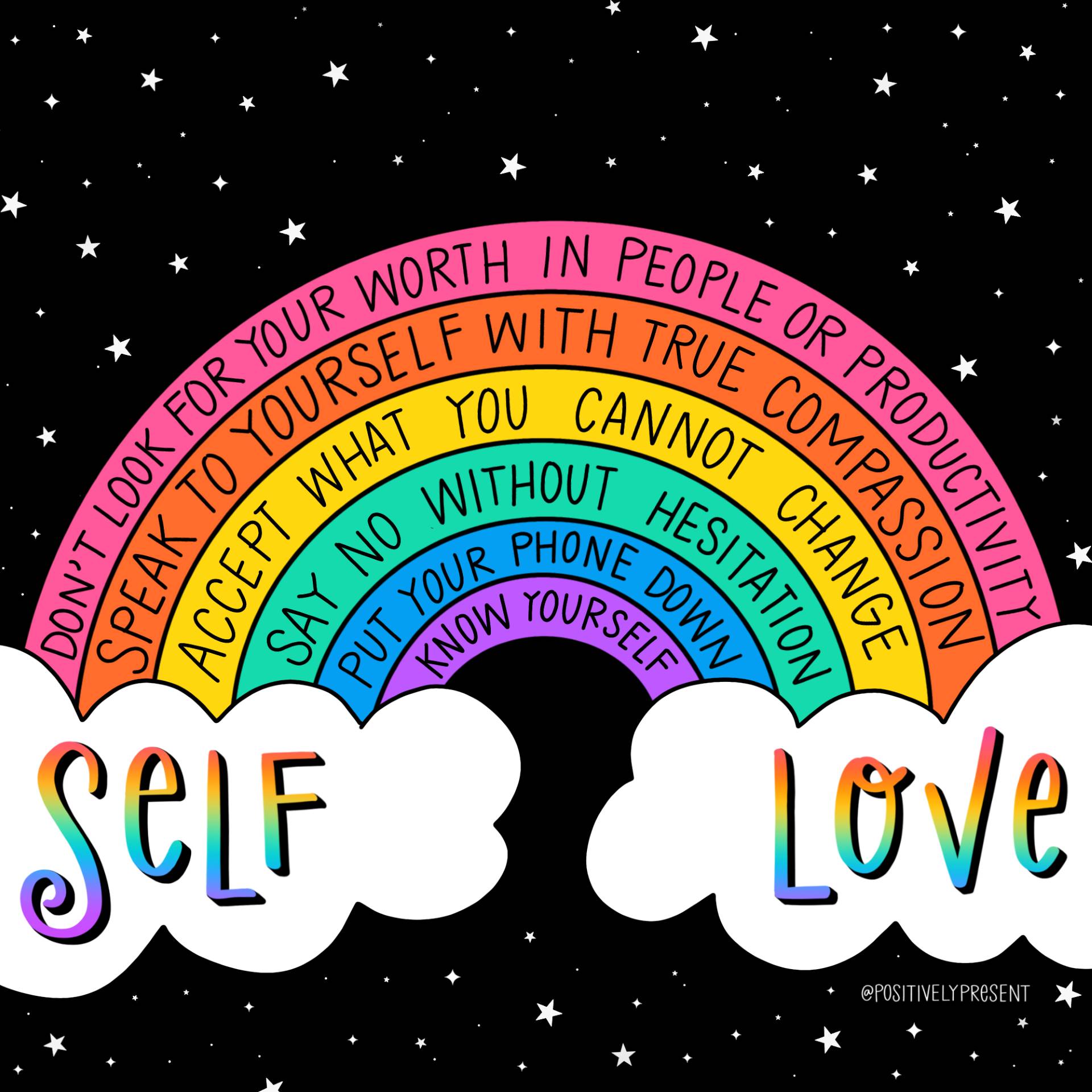
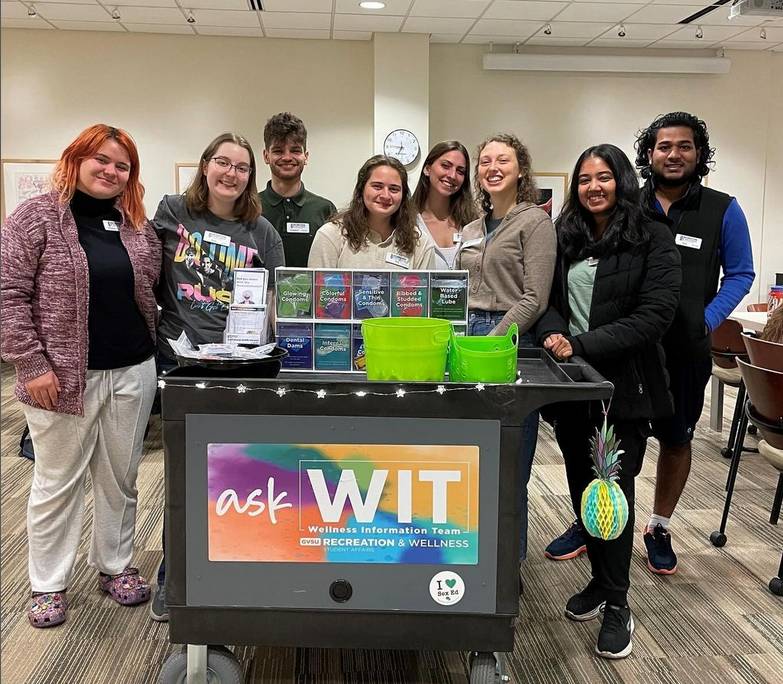
[1682353231].jpg)
